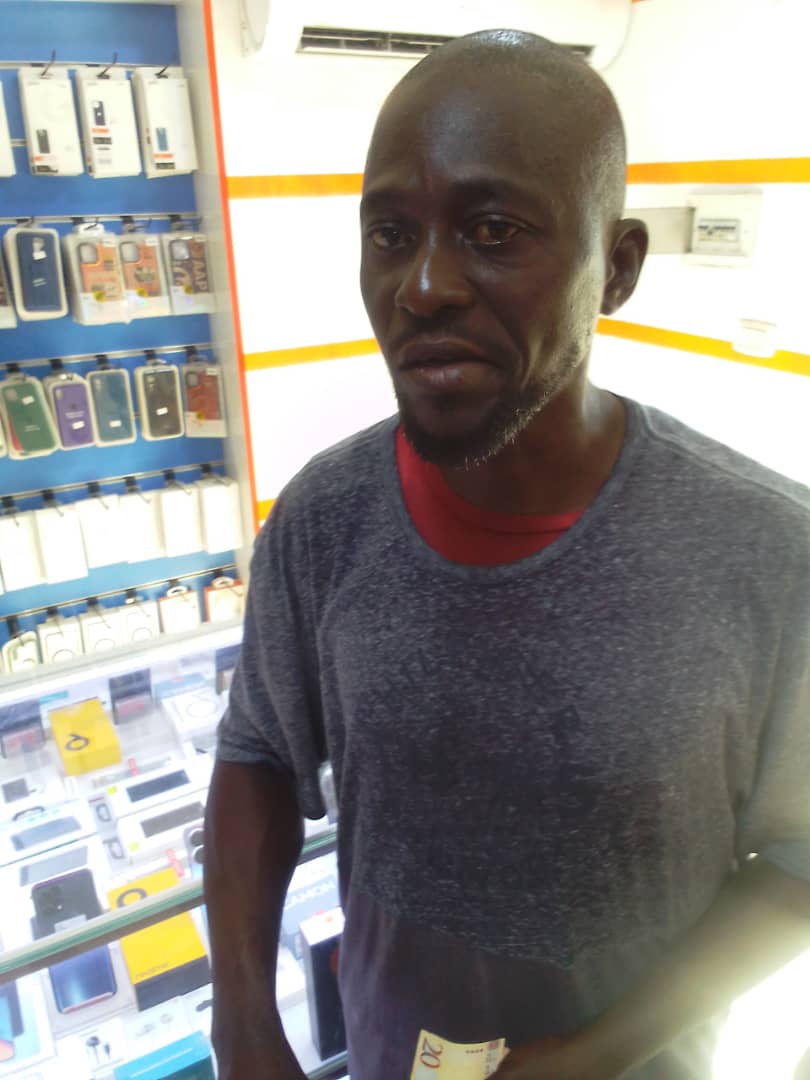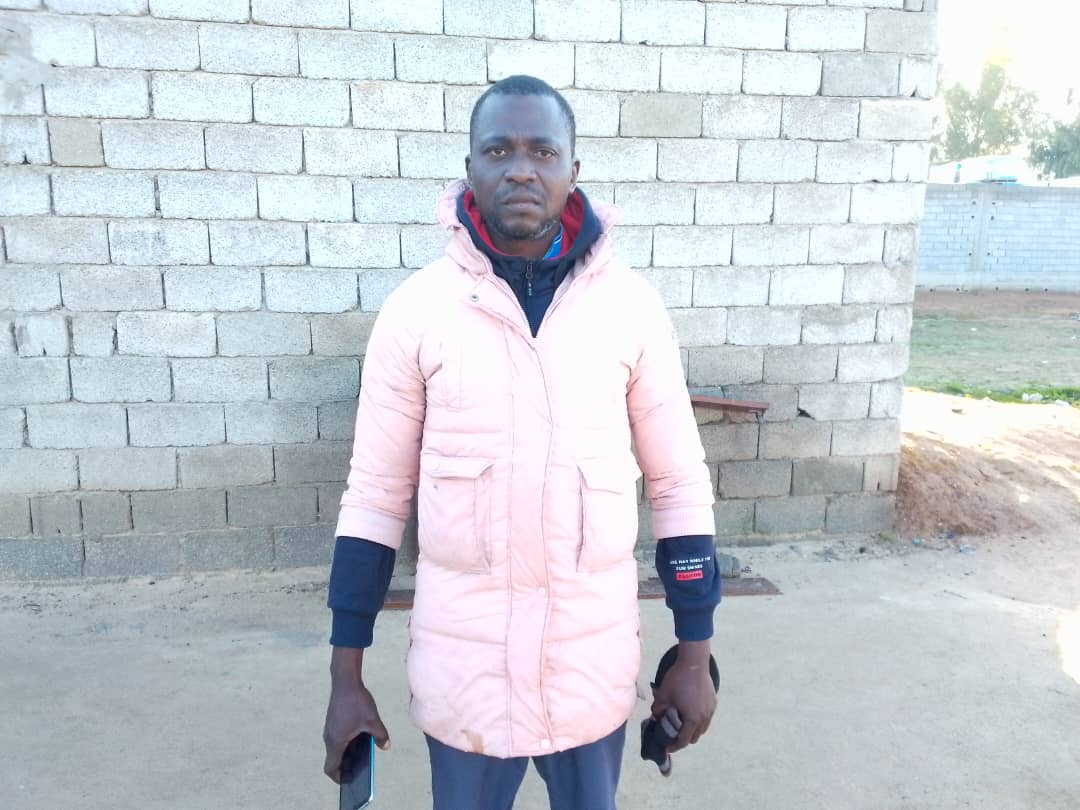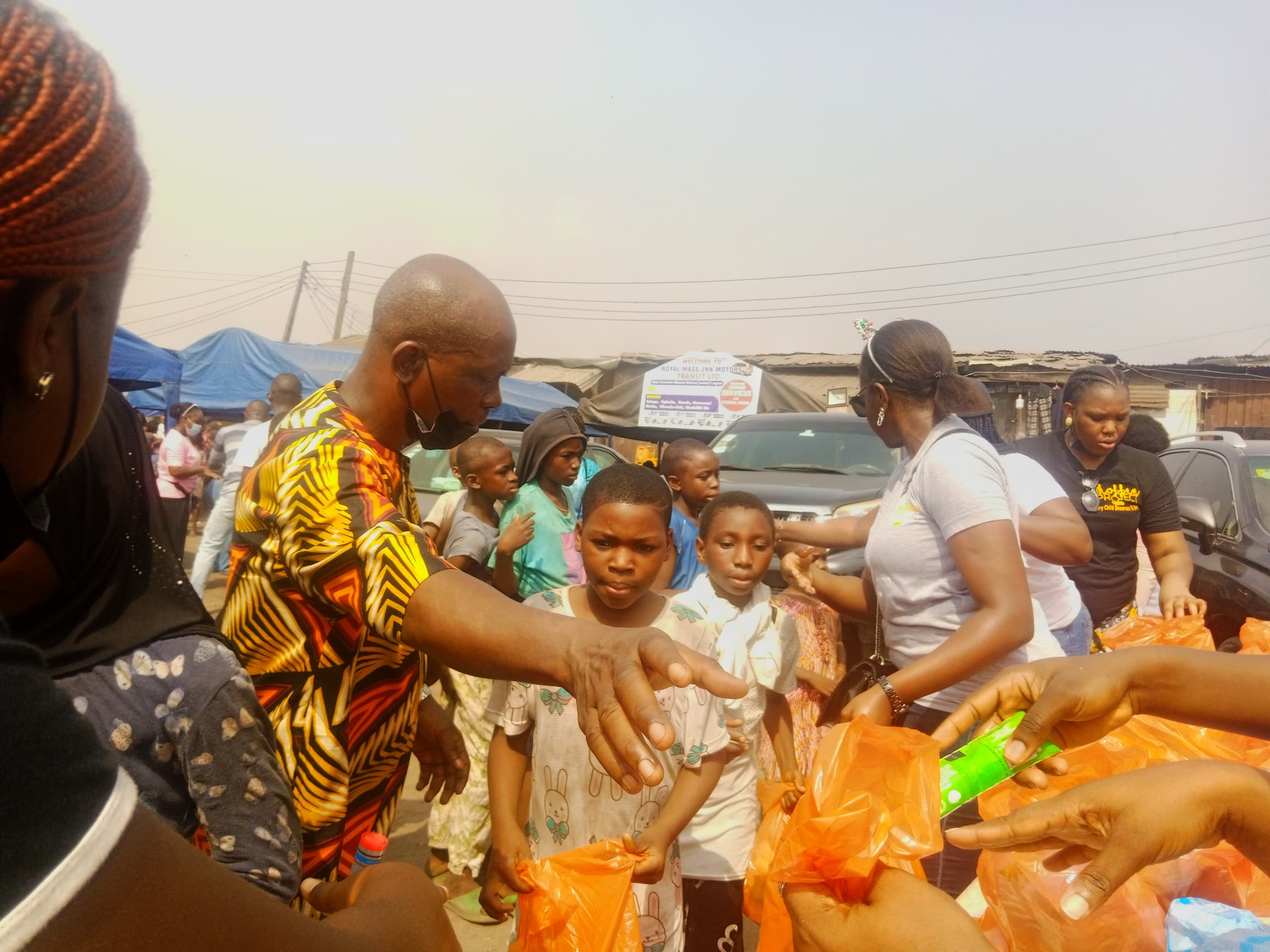BY VICTOR AKHIDENOR
Christmas is in the air, but it’s all blue for Evelyn Onobun (not the real name). The 47-year-old civil servant is reliving Elvis Presley’s track, Blue Christmas, 66 years after the song hit the airwaves.
I’ll have a blue Christmas without you
I’ll be so blue just thinking about you
Decorations of red on a green Christmas tree
Won’t be the same dear, if you’re not here with me
And when those blue snowflakes start falling
That’s when those blue memories start calling
You’ll be doing all right
With your Christmas of white
But I’ll have a blue, blue, blue, blue Christmas…
On December 6, 2023, Evelyn Onobun walked up to the Migrant Resource Centre at the federal secretariat complex, Aduwawa, Benin City to report that her husband of 10 years, Oziegbe Okoruwa, is stranded in Tripoli, Libya. With shoulders hunched, hands clenched, and a barely audible voice, her grief was palpable. Hers was a kind of grief for losing a loved one who was still alive.
Advertisement
In search of a better life

A year earlier, Oziegbe Okoruwa was desperate. The business of selling computer accessories has become saturated. He could not get enough money to care for himself, his wife, and his son.
Advertisement
“I’ll travel abroad, find a job, and then you and my son will join me,” he told his wife.
“We won’t be separated for long.”
She acquiesced.
To raise money for the journey, he leased out an inherited property. Okoruwa never contemplated renewing his passport and getting a visa to travel the right way. Instead, a friend called Abra Godfrey Ogeremu found him an agent to whom he initially paid N1,000,000. Okoruwa felt braving the Sahara (31 percent of Africa) and crossing the Mediterranean Sea (which has a maximum depth of 5,109m) were his best bet.
Advertisement
From Nigeria, there are four major exit points to northern Africa en route to Europe. Irregular migrants could travel to Kano and cross to the Niger Republic. The Mali route is its substitute. There’s a minimally used route between Lagos and Benin Republic. And then there’s a northeastern border into Cameroon. Okoruwa’s agent picked the first one for his client.
Decked in blue jeans and blacktop, he boarded a bus from Benin City to Kano. His travel bag contained a few clothes, a keg of water, glucose, and milk. “Travel light” was one of the first things the agent told him. Okoruwa was in the company of someone he barely knew called IT from Kogi State. They had met in a hotel called Courtyard in Benin, where IT worked. IT later proved to be an ITT (International Thief Thief) parodying one of Fela Anikulapo-Kuti’s track.
It was before sunset, six hours after getting to Kano, that Okoruwa and 19 others headed for the Sahara on January 18, 2023. They were not all in the same vehicle. He was in a Hilux with a foreign number plate he couldn’t place.
The Sahara is a vast wasteland that spans 11 African countries, including Algeria, Libya, Niger Republic, and Sudan. It’s a sterile environment where the temperature of the sand alone can be over 80°C (176°F). If you want to burn your skin, then walk on it barefoot.
Advertisement
You must have read or heard of the mystical powers Majek Fashek’s song ‘Send Down the Rain’ has in getting the clouds to respond to its request, right? In the Sahara, however, if you sing the song even with the music maestro leading the band, there won’t be rain. Half of the desert receives less than 1 inch of rain every year.
There are no major landmarks in the Sahara, only endless dunes. And “Unfortunate” is your name if you find yourself in the middle of a massive sandstorm which most times lasts for 12 hours. The fine grains of sand can choke you and rip your flesh apart. For a non-nomad, getting stranded in the Sahara is akin to a death sentence.
Advertisement
“We spent two weeks to complete the journey,” Okoruwa opens up his account of the journey.
“We could travel for two days almost nonstop. We had intermittent stops here and there. The Hilux we entered from Kano wasn’t the same vehicle we ended up with. We hopped from one to another. I counted about 15 in all. But all the drivers have one thing in common – they drove at neck-breaking speed. They drove as if it was between life and death. I saw mothers clutching their kids; strangers holding hands, hoping for the best but expecting the worst.”
Advertisement
The worst indeed came for a few of his co-travellers.
“Some people died in an accident, or lack of water to drink, out of hunger, and illness,” he said.
Advertisement
His only major scare happened when they fell into an ambush.
“A group of men dressed like Arabs and armed to the teeth waylaid us about eight or nine days into the journey,” he said.
“They searched our bags roughly; scattering their contents everywhere. But they only took one thing from those who had it – iPhones. I didn’t have one. But they left fear and panic in their wakes.”
Aside from the heart-in-mouth tension caused by the overspeeding drivers, the journey was uneventful until they arrived at Sabha, 769km to Tripoli.
“At this point, they will call your agent to confirm if you indeed made payment and can proceed on the journey,” he said.
“I got the all-clear, but not so with IT. I have been the one taking care of his bills. He said he was expecting some money from his brother and would pay back all he owed me. I believed him. And coughed out more money to bail him out. How he disappeared after bailing him out is still a surprise to me. I spent about N500,000 on him.”
Yusuf, Okoruwa’s Ghanaian-born agent, took him, and his other clients, to a shantytown called Ibrahim Ghetto. Yusuf housed them in an uncompleted building. Before then, Okoruwa stayed with a Nigerian, called Oge.
“When Yusuf came, he said we should hide in the ghetto until the coast was clear and ready for us to cross the sea to Italy. That was how we waited for almost a year. I no longer hear from him anymore and now I’m stranded.”
What if you could go back in time? What would you do? Witness the Trojan War? Check in on Adam and Eve? Okoruwa laughed out loud. His first in many weeks.
“I want to go back to Nigeria,” he said.
“I’m suffering here. I miss everyone in Nigeria, even my enemies. I miss my wife, son, siblings, and friends. There’s no Christmas here. I feel very sad not spending Christmas with my family.”
His wife, Evelyn Onobun, takes over.
“The family suffers when a spouse leaves and years may go by before the family is reunited,” she said.
“I miss my husband. There are things money cannot buy. Like love, emotional security, and family unity. Family is far more important than money.”
Breaking the cost
The journey has had a huge toll on Okoruwa. We had to jog his memory to know what he had spent so far on the futile sojourn.
“Initially, I paid 1m for the trip, but later they collected more money when I arrived in Libya,” he said.
“Benin to Abuja was about N10,000. Abuja to Kano was N6,000. At first, I lent IT N200,000. Then gave him about N300,000 when he was stranded at Sabha. I paid N120,000 from Sabha to Tripoli. Then I paid one Igbo lady called Oge N310,000 to stay in her house for a week before Yusuf came to take me to the uncompleted building.”
Whenever he ran out of cash, he called or sent WhatsApp messages to his dear wife.
“If I want to collect money here, my spouse will credit the relative of the person in Nigeria. When the transfer is confirmed, the person here gives me the money less the commission,” he said.
“I’ve spent about N4m just to get stranded in Tripoli.”
Holding costs constant, irregular migration is unsafe. The International Organization for Migration’s Missing Migrants Project has documented the deaths and disappearances of over 5,600 people transiting through the Sahara since 2014. By December 2022, 149 deaths were recorded. These numbers are likely higher as many irregular migrants’ deaths go unrecorded.
Counting the cost
“Migration…is the oldest action against poverty,” the renowned economist, J.K. Galbraith, wrote. Although some have fled from wars, natural disasters, or persecution, most, like Oziegbe Okoruwa, moved for economic reasons. But before deciding on migrating for economic reasons, consider the following questions:
1) Is your economic situation so desperate that you or your spouse must move to a country where wages are higher?
2) How much debt would you incur to finance the trip, and how will the debt be repaid?
3) Is it worth breaking up the family for economic advantages that may prove unrealistic?
4) What guarantee do you have that you would not be putting yourself in the hands of criminal organisations?
5) If such a criminal group did organise the journey, do you understand that your wife or daughter might well find herself forced to work as a prostitute?
6) Do you realise that if you enter a country as an irregular migrant, you may not get fixed employment and could be sent back in the process losing all the money you invested in the journey?
7) Do you want to consider becoming an irregular migrant or resorting to dishonest measures to gain admittance to another country?
We bet you don’t want to and that’s why you need the Migrant Resource Centre (MRC). The MRC, an EU/IOM Initiative for Migrant Protection and Reintegration in Nigeria are physical structures in Abuja, Lagos, and Benin City that provide services to migrants. It facilitates and empowers them to migrate in a legal, voluntary, and orderly manner.
Evelyn Onobun visited the centre late. But better late than never. The MRC in Benin City immediately swung into action. An email containing the details of Okoruwa and his predicament was sent to the IOM office in the city.
The IOM developed the Assisted Voluntary Return and Reintegration (AVRR) to support migrants who are unwilling or unable to stay in a host country. And wish to return voluntarily to their country of origin or a third country where they have a permanent residence permit.
Beneficiaries of the AVRR programme may include stranded migrants, irregular migrants, regular migrants, and migrants with health-related needs.
Oziegbe Okoruwa is a stranded migrant. Oziegbe Okoruwa is an irregular migrant. And worst of all, the 49-year-old Oziegbe Okoruwa is a migrant with health-related needs.
He needs all the help he can get.
Akhidenor can be reached via [email protected]
Add a comment






